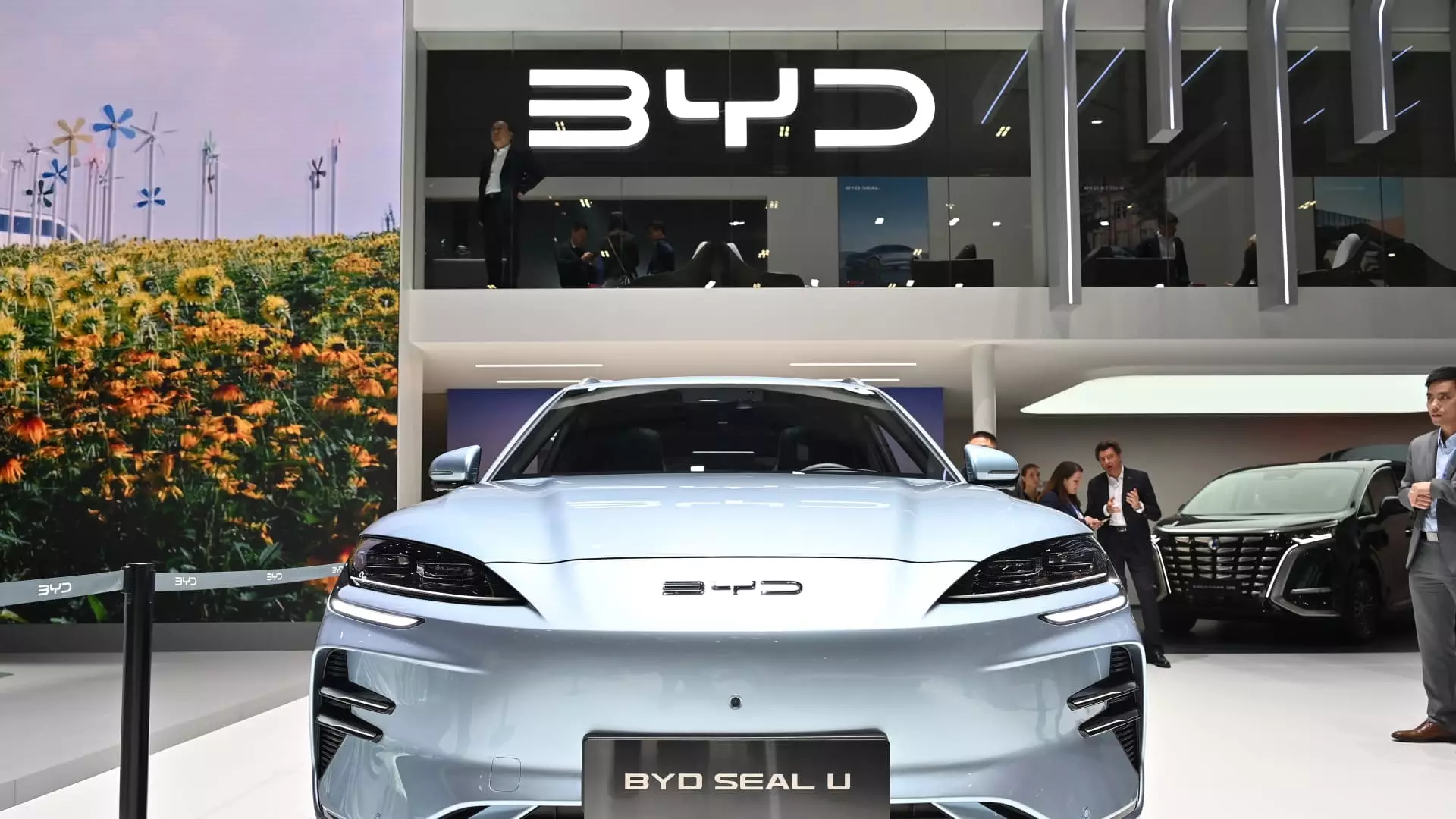The European Union’s decision to increase tariffs on electric vehicles imported from China is causing a stir in the automotive industry. The European Commission announced these levies after concluding that Chinese producers of battery electric vehicles benefit from “unfair” subsidization. The tariffs, ranging from 17.4% to 37.6%, will come into effect on Friday, affecting not only Chinese automakers like BYD but also potentially European brands that manufacture cars in China, such as Tesla. This move comes at a time when Chinese automakers are aggressively expanding into the European market, posing a threat to established automakers in the region.
Chinese EV manufacturers have already begun responding to the impending tariffs. Nio has stated that it is currently maintaining prices for its cars sold in Europe but has warned that price adjustments may be necessary in the future due to the tariffs. Xpeng, another Chinese EV company, reassured customers awaiting deliveries that they would be protected from price increases, although it did not confirm whether prices would ultimately go up. Geely declined to comment on the situation, indicating that the tariffs are causing uncertainty and concern among automakers.
Tesla’s Concerns
When the EU first announced the tariffs, Tesla expressed concerns about potential price increases for its vehicles, particularly the Model 3. While the specific tariff rate for Tesla has not been disclosed, the company is likely to face higher prices in the European market as a result of the levies. The uncertain impact of these tariffs is causing speculation and anxiety within the industry.
Temporary Nature of Tariffs
The tariffs, set to last for four months, are provisional and subject to a vote by EU member states for “definitive duties” that would be enforced for five years. The temporary nature of these levies adds to the uncertainty surrounding the situation, as automakers are left waiting for a final decision that could significantly impact their operations in the European market.
Chinese officials have criticized the EU’s decision to impose tariffs, labeling it as a “protectionist act.” The Chinese Commerce Ministry has urged both parties to engage in sincere and expedited consultations to reach a mutually acceptable solution. Chinese EV makers have reiterated their commitment to the European market and are exploring options such as establishing local manufacturing capabilities in Europe to mitigate the effects of the tariffs.
The escalation of tariffs on Chinese electric vehicle imports by the EU has created a challenging environment for automakers on both sides. The uncertainty surrounding pricing and market access is causing anxiety within the industry, with stakeholders eagerly awaiting a resolution to the trade dispute. The outcome of this situation will not only impact the competitiveness of Chinese EV manufacturers in Europe but will also shape the future landscape of the global automotive industry.


Leave a Reply